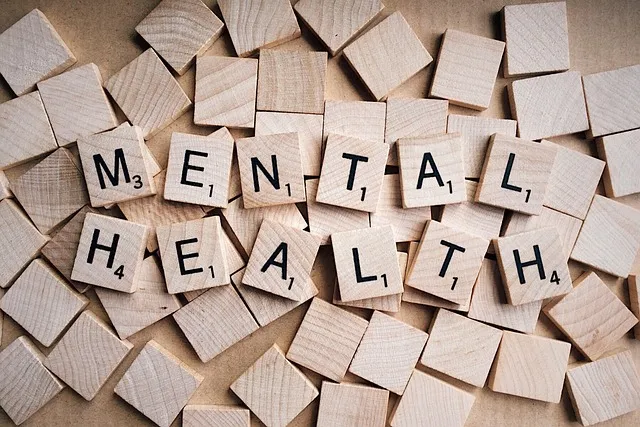The media significantly shapes public perceptions of mental health, with stereotypes contributing to stigma. Kaiser Permanente (KP) behavioral health providers play a crucial role in breaking down these stigmas through accurate representation and education. KP prioritizes positive media narratives by training its providers in stigma-busting techniques and integrating mental health resources into primary care. They collaborate with media creators to feature diverse individuals and promote coping skills, reducing barriers to access and fostering understanding. By measuring the impact of these efforts through public media literacy and community outreach, KP ensures sustainable progress in improving mental health support and reducing stigmas at a community level.
Mental illness representation in media significantly impacts public perceptions, often perpetuating stigma. This article explores strategies towards more accurate and compassionate portrayals, drawing insights from Kaiser Permanente’s efforts in addressing behavioral health stigma through innovative approaches. We delve into the current landscape, examining successful initiatives like those employed by Kaiser Permanente’s behavioral health providers. Additionally, we discuss engaging with media creators for authentic depictions, collaboration, education, and measuring the positive outcomes of improved representation.
- Understanding the Impact of Media Portrayal on Mental Health Perceptions
- The Current State: How Kaiser Permanente Addresses Behavioral Health Stigma
- Engaging with Superior Media Representation Strategies
- Collaboration and Education: Working with Creators for Accurate Depictions
- Measuring Success: Evaluating the Effectiveness of Improved Media Portrayal
Understanding the Impact of Media Portrayal on Mental Health Perceptions

The media plays a significant role in shaping public perceptions about mental health and illness. The way mental disorders are portrayed in films, television shows, and news articles can influence how society understands and treats individuals struggling with these conditions. Unfortunately, stereotypical or inaccurate representations in the media often contribute to stigma and misinformed attitudes towards mental health, hindering support and understanding from both the public and mental health professionals like those at Kaiser Permanente behavioral health providers.
Positive and nuanced media portrayals can help reduce stigma, foster empathy, and encourage individuals to seek help. On the other hand, negative or simplistic depictions can perpetuate harmful misconceptions, leading to misdiagnosis or underdiagnosis. A comprehensive Risk Assessment for Mental Health Professionals should consider media influence as a factor in patient outcomes. By promoting accurate representation, encouraging Coping Skills Development, and emphasizing Self-Care Practices among mental health professionals, we can work towards creating a more supportive and understanding society.
The Current State: How Kaiser Permanente Addresses Behavioral Health Stigma

Kaiser Permanente recognizes the profound impact of stigma surrounding behavioral health and takes a proactive approach to addressing it. They employ an extensive network of superior behavioral health providers who are trained not only in the latest therapeutic techniques but also in stigma-busting strategies. Through regular workshops, these professionals engage in self-awareness exercises that help them understand their own biases and preconceptions, ensuring they offer crisis intervention guidance that is sensitive and supportive.
The organization goes beyond traditional care by integrating mental health resources into primary care settings, normalizing conversations about anxiety relief and reducing the barriers patients often face when seeking help. By fostering an environment of understanding and acceptance, Kaiser Permanente aims to create a supportive system where individuals can access the quality care they need without fear of judgment or stigma.
Engaging with Superior Media Representation Strategies

In the pursuit of accurate and compassionate mental illness representation, media plays a pivotal role. Engaging with superior media representation strategies means showcasing individuals with diverse mental health conditions as complex human beings rather than stereotypes. By featuring Kaiser Permanente behavioral health providers in positive, multifaceted roles, media can help dispel myths and foster empathy among audiences. This approach aligns with Compassion Cultivation Practices, promoting understanding and reducing stigma.
Incorporating stories that highlight the Inner Strength Development of individuals living with mental illness is another powerful strategy. Depicting their resilience and coping mechanisms, such as Conflict Resolution Techniques, can inspire hope and encourage viewers to seek support when needed. Ultimately, these strategies not only enrich media content but also contribute to a more inclusive and supportive societal narrative around mental health.
Collaboration and Education: Working with Creators for Accurate Depictions

Collaboration between media creators and mental health professionals is a powerful tool for challenging stereotypes and presenting accurate representations of mental illness. By involving Kaiser Permanente behavioral health providers, media platforms can ensure their content educates audiences while promoting empathy and understanding. These professionals bring expertise in various fields, including depression prevention, stress reduction methods, and coping skills development, which are essential aspects of mental wellness. Their input helps creators craft narratives that reflect the complexities of different conditions, moving away from simplistic and often harmful portrayals.
Such partnerships can foster a more nuanced portrayal of individuals living with mental illness, showcasing their resilience and diverse experiences. This approach not only educates viewers but also encourages help-seeking behaviors by normalizing conversations around mental health. By collaborating, creators and healthcare providers can collectively drive meaningful change, ensuring media serves as a platform to promote mental wellness and reduce the stigma surrounding it.
Measuring Success: Evaluating the Effectiveness of Improved Media Portrayal

Measuring success in improving mental illness representation in media involves evaluating the effectiveness of these changes. By assessing how accurately and sensitively mental health conditions are portrayed, we can gauge the impact on public understanding and perceptions. Kaiser Permanente’s behavioral health providers play a crucial role here, as they can compare current media depictions with historical ones to identify shifts in representation. This analysis helps determine if improvements are leading to more nuanced and empathetic portrayals, challenging stereotypes, and fostering better understanding of mental health struggles within communities.
To ensure these positive changes are sustainable, it’s important to look beyond individual stories. Metrics such as increased media literacy among the public, enhanced Self-Care Practices, and the Community Outreach Program Implementation can indicate whether these shifts in representation are leading to broader cultural changes. Moreover, tracking the development of Coping Skills within affected communities over time shows how improved media portrayal is translating into better support for individuals dealing with mental health issues.
Media has a profound impact on shaping societal perceptions of mental illness. By challenging negative stereotypes and promoting accurate, diverse representations, we can foster more understanding and reduce stigma. Kaiser Permanente’s initiative showcases how behavioral health providers can lead the way in media engagement, collaborating with creators to ensure authentic depictions. Through collaboration, education, and evaluation, we can drive meaningful change, making mental health support more accessible and accepting in our communities. Superior media representation strategies are key to unlocking a healthier, more inclusive future.






